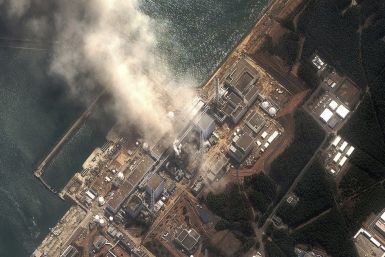Faced with an uneven world recovery and uncertain outlook, finance leaders were hoping on Friday to flesh out a plan to build a global economy less prone to the booms and busts of recent decades.
As people in Japan struggle to control the damaged nuclear reactors and various agencies are involved in mitigating the risk involved. The people are living under a constant threat of nuclear radiation. To put all the doubts to rest Japan's Nuclear and Industrial Safety Agency has released a question and answer session that expalins nuclear radiation threats.
Overall, the situation at the Fukushima Daiichi plant remains very serious but there are early signs of recovery in some functions such as electrical power and instrumentation.
The market is incredibly fickle, especially for fundamental analysis-driven traders and analysts. The frustrating thing is that what mattered just a few months ago may not mean anything at all today.
Several advocacy groups have petitioned the Nuclear Regulatory Commission to suspend reactor licensing until a full review of the Fukushima disaster in Japan is complete.
Prices paid by U.S. factories picked up pace in March as the disruption caused by Japan's earthquake began to be felt in the auto industry and fuel prices rose strongly.
Japan's fragile post-disaster political truce unraveled on Thursday as the head of the main opposition party called on unpopular Prime Minister Naoto Kan to quit over his handling of the country's natural calamities and a nuclear crisis.
Worries about higher inflation and signs of job market weakness prompted investors to sell stocks on Thursday.
Japan's Toshiba Corp said on Thursday it expects its operations to recover in the second half of this financial year after being hit by supply chain disruptions in the wake of the March 11 earthquake and tsunami.
Wall Street stocks were set for a lower open on Thursday as worries about higher inflation and signs of job market weakness kept investors cautious.
Oppenheimer lowered its profit estimates of Microsoft Corp. (NASDAQ:MSFT) citing a gloomy PC market.
Stock index futures fell on Thursday before U.S. data that could shed light on the impact of rising commodity prices and as concerns grew over Chinese inflation.
Stock index futures fell on Thursday as investors awaited data to assess the impact of rising commodity prices amid growing concerns over Chinese inflation.
Stock index futures pointed to a slightly weaker start for Wall Street on Thursday, with futures for the S&P 500, Dow Jones industrial average and Nasdaq down 0.1 to 0.2 percent by 0847 GMT.
The dollar sank to a 16-month low against a basket of currencies on Thursday as investors bet U.S. monetary policy would continue to be loose, while a report that Chinese inflation will rise dragged on equities.
Summary of details at Fukushima Nuclear Stations and other reactors by Japan's Nuclear and Industrial Safety Agency:
IAEA's latest status on reactors at Fukushima Nuclear Plant : the situation at the Fukushima Daiichi plant remains very serious but there are early signs of recovery in some functions such as electrical power and instrumentation
Computer sales slid lower in the first three months of this year for the first time since 2009 as shoppers suffered post-holiday shopping fatigue, Apple Inc's iPad continued to attract buyers and Japan focused on recovering from the earthquake and tsunami.
The American financial elites have become obscenely rich, especially compared to their counterparts in the developed world.
Dutch chip equipment maker ASML, a bellwether for the European tech sector, said some customers were holding back on confirming orders because the Japan quake had disrupted their supply chain.
News of the Wii's price cut may be confirmation that Nintendo plans on announcing the console's successor soon.
Dan Dorrow of Faros Trading continues to expect the Australian dollar to perform well on the strength of Asian economies.





















